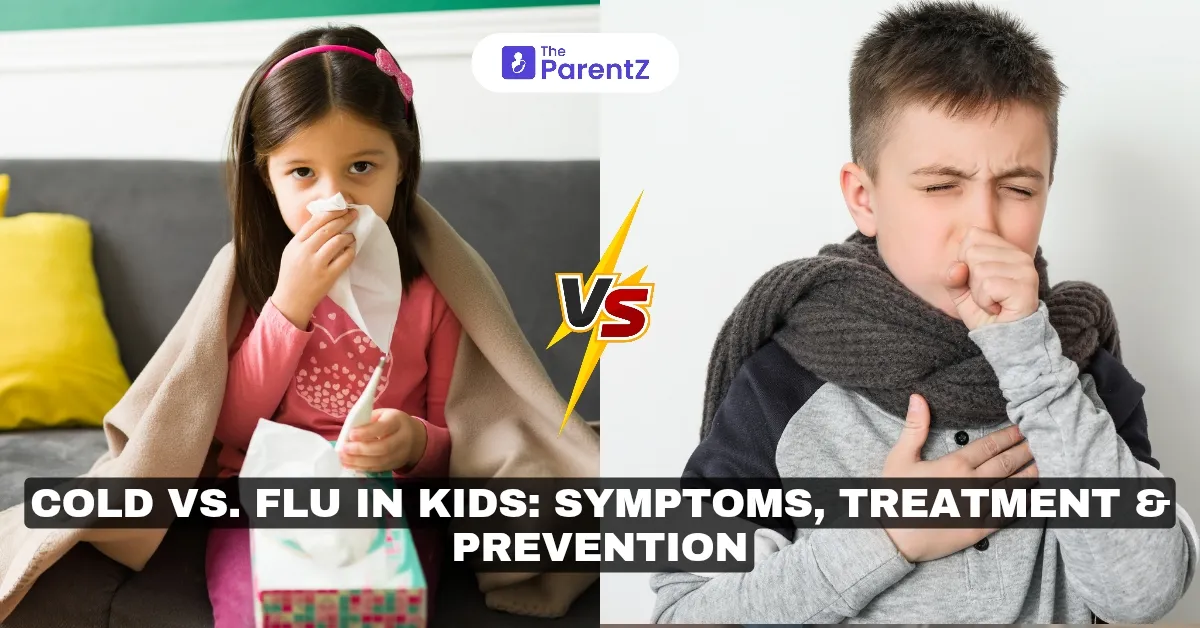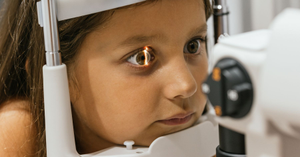When kids start coughing and sneezing, it can be hard to tell if it’s just a cold or something more serious like the flu. While both illnesses affect the respiratory system, they have key differences in symptoms, severity, and treatment. Understanding these differences can help you take the right steps to care for your child.
What Causes a Cold and the Flu?
Colds and flu are caused by viruses but are not the same.
• A cold is usually caused by rhinoviruses, though other viruses can also be responsible.
• The flu is caused by the influenza virus, which spreads more easily and can lead to complications.
Both illnesses spread through coughs, sneezes, touching contaminated surfaces, or close contact with someone who is sick.
Symptoms of a Cold in Kids
Colds develop gradually and are usually mild. Symptoms include:
• Runny or stuffy nose
• Sneezing
• Sore throat
• Mild cough
• Low fever (or none at all)
• Mild tiredness
Most colds last between 5 to 10 days, and children recover without serious complications.
Symptoms of the Flu in Kids
The flu appears suddenly and is more intense than a cold. Symptoms include:
• High fever (above 100.4°F or 38°C)
• Severe cough
• Body aches and chills
• Headache
• Extreme tiredness
• Occasional vomiting or diarrhea (more common in younger kids)
Flu symptoms can last for one to two weeks, and complications like pneumonia, ear infections, or sinus infections can occur.
How to Tell If Your Child Has a Cold or the Flu?
• If symptoms come on gradually with mild discomfort, it is likely a cold.
• If your child has a high fever, severe body aches, and extreme tiredness, it is more likely the flu.
• A cold usually causes a stuffy nose, while the flu often leads to fever and chills.
When to See a Doctor?
Most colds and flu cases improve with home care, but seek medical help if your child has:
• A high fever lasting more than three days
• Difficulty breathing or wheezing
• Severe headache or stiff neck
• Vomiting or diarrhea leading to dehydration
• Blue lips or skin
• Unusual drowsiness or irritability
Treatment for a Cold in Kids
There is no cure for the common cold, but you can help ease your child’s symptoms:
• Encourage rest and plenty of fluids.
• Use saline drops and a humidifier to relieve congestion.
• Give honey to soothe a cough (only for children above one year).
• Offer soft, warm foods like soup or herbal tea.
Treatment for the Flu in Kids
Flu symptoms can be more intense, but most children recover at home with rest and proper care.
• Keep your child well-hydrated to prevent dehydration.
• Let them rest as much as possible.
• Use fever-reducing medication (acetaminophen or ibuprofen) if advised by a doctor.
• If prescribed early, antiviral medications like Tamiflu may help shorten the illness.
Do not give aspirin to children, as it can cause a rare but serious condition called Reye’s syndrome.
How to Prevent Cold and Flu in Kids?
Preventing infections is the best way to keep your child healthy.
• Teach frequent handwashing with soap and water.
• Keep them away from sick individuals.
• Boost their immune system with a healthy diet, proper sleep, and regular physical activity.
• Get a flu vaccine every year for children above six months old.
• Encourage good hygiene, like covering the mouth when coughing or sneezing.
Final Thoughts
Colds and flu are common in kids, but the flu can be more severe and lead to complications. Understanding the differences in symptoms and providing proper care can help your child recover faster. If your child’s symptoms worsen or do not improve, consult a doctor for further guidance.








Be the first one to comment on this story.